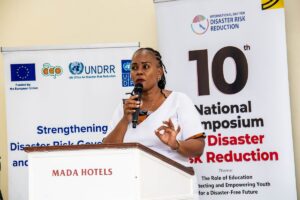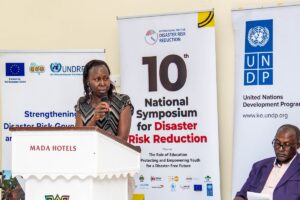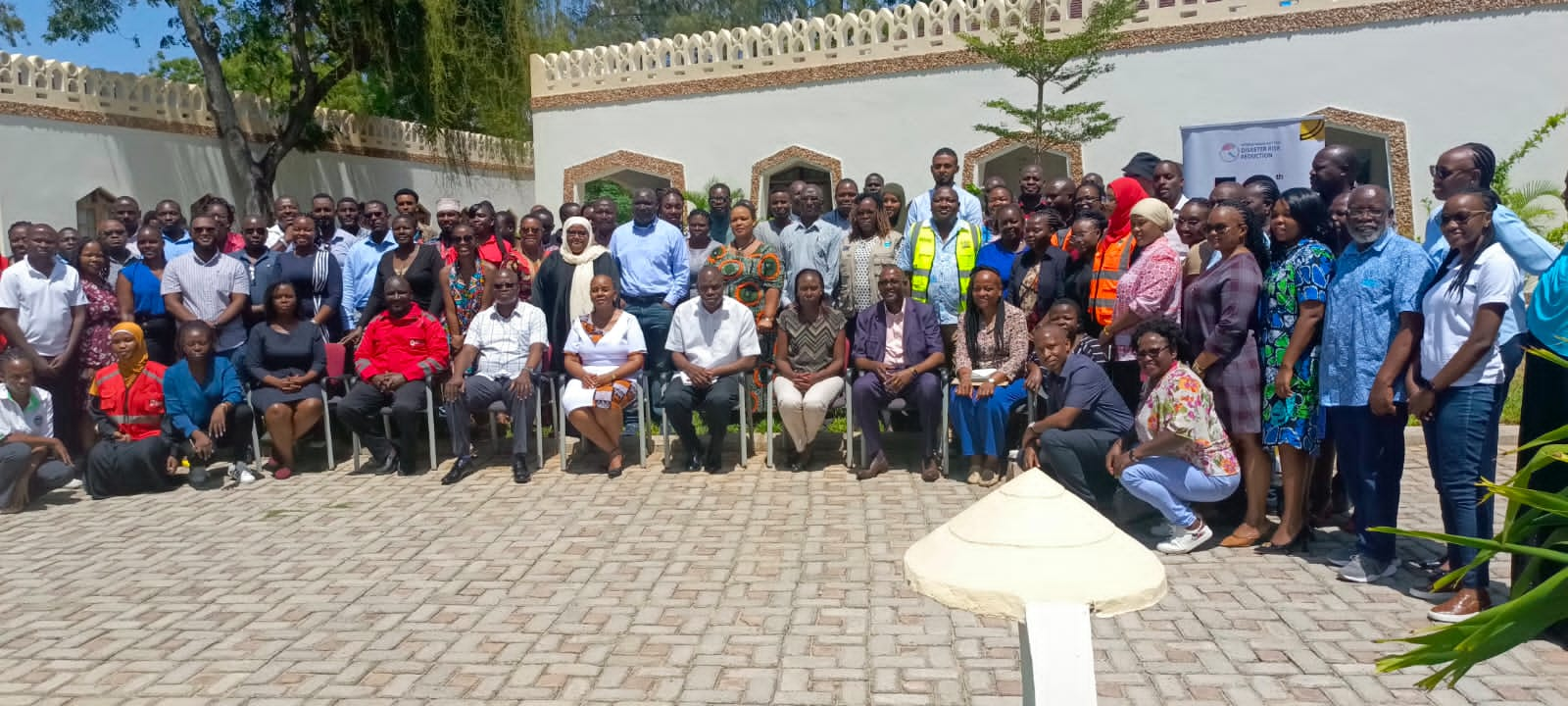Kilifi, Kenya– As the world grapples with intensifying climate change and natural disasters, youth voices emerge as indispensable in shaping a safer, more resilient future. The United Nations Population Fund (UNFPA) has strategically invested in the next generation of leaders, decision-makers, and experts to address disaster risk reduction (DRR) and climate change.
Speaking during the session the Deputy Governor of Kilifi, Honorable Flora Mbetsa Chibule, said “Now is the time to view our youth not just as personnel that can help in disaster risk reduction.”

The governor lauded the United Nations agencies and AMREF for supporting youth participation and inclusion during the 10th National Symposium for Disaster Risk Reduction. She also stressed that technology and innovation, which, are predominately manned by the youth, need to be embedded in disaster response because they play a pivotal role in disaster risk awareness.
“We need concrete plans that make young people the center of change,” said Governor Mbesta, “The future of disaster risk reduction is in the hands of the youth. ”
The deputy governor also emphasized that the disaster risk reduction strategy should be more forward-looking because the youth may be grossly impacted if they are not part of the solution.
Historically, the Kenyan youth were relegated to passive roles in disaster relief efforts, however, statistics from the flashfloods that ravaged Kenya noted that 90% of the casualties were under 35.

In the same breadth, Everlyn Koech is the team leader for environment and resilience at the United Nations Development Agency in Kenya. said, “Managing disaster is not just a humanitarian issue it is a development issue.“
Koech also underscored the importance of collaboration in reducing risks and disasters and lauded the need for including the youth in collective response to disaster.
The symposium also included youth voices and held a panel discussion where the youth champions from the UNFPA advisory panel gave their views on what needs to be prioritized in the disaster risk response.
Allan Mwita one of the youth representatives from UNFPA said that people with disabilities are disproportionately impacted by disaster. Mwita stated that disaster responses need to have a response strategy for persons living with disabilities.
“Disaster respondents should leave no one behind,” said Mwita, “People with disabilities also need to be prioritized when we think of disaster response.”
Accordingly, Brian Mukusa insisted that disaster management policies must forefront youth because the youth are the largest population in Kenya.
UNFPA Kenya’s unwavering commitment to youth empowerment is evident in its support for over 30 young leaders to participate in the 10th National Symposium for Disaster Risk Reduction in Kenya.
This landmark event brought together policymakers, community leaders, development partners, and most importantly, the youth, to forge innovative and inclusive strategies for mitigating disaster risks and combating the impacts of climate change.

